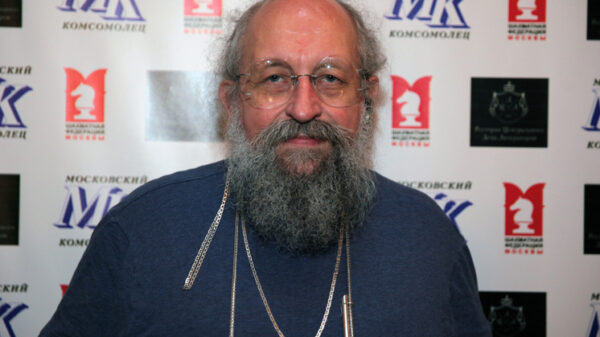 Henry Thomas in ET movie ET Photo: ScreenProd/Photononstop/Alamy Stock Photo
Henry Thomas in ET movie ET Photo: ScreenProd/Photononstop/Alamy Stock Photo
Nine-year-old boy sitting in a darkened room with a camera directed at his face, and tears tremble in his eyes. A male voice-over—gentle but firm—tells him that he's come to pick up the boy's best friend. “You can’t take him away, he’s mine,” the boy sobs, lips trembling. «He's my best friend, and you can't take him away.»
At last, the voice of the second invisible man is heard: director Steven Spielberg. The boy is child actor Henry Thomas, who is auditioning for the lead role in ET. Alien. «Okay kid,» Spielberg chuckles, «you got the job.»
This video is widely available for viewing on E.T. (Blu-ray) and online. But what exactly does it show? Unusual acting? Or do some adults make a small child very upset? Or, in this case, are they the same thing?
Child's play is one of the strangest ingredients in the pantry of cinema, and, not least, one of the most difficult rights to use. So it's great to report that two amazing new films now in theaters have done just that: the British father-daughter drama The Scraper and the American independent comedy Theater Camp.
When child's play really works — as it does in Chaplin's The Kid, De Sica's Bicycle Thieves, Truffaut's 400 Blows, Reiner's Stay with Me, and, of course, The Alien. – it can touch the audience like nothing else. But when it doesn't, the sight can be heartbreaking.

Many critics, including this one, tend to focus on children's poor performance only in the most dire of circumstances—and even then, we tend to complain about coded language like a teacher writing a semester report. (“Energetic,” “persistent,” and “demonstrative” are some convenient euphemisms.)
But in terms of their impact — both on the film and, later, on the young actor's life — the worst can be catastrophic. Jake Lloyd was only eight years old when he played the young Darth Vader in Star Wars: Episode I — The Phantom Menace. The role itself was dizzyingly far from the worldview of any teenager, and Lloyd himself was inappropriately cute, and his dialogue: «I'll try to twist, it's a good trick!» he sounded like a fool. He became the center of fan anger and as a result retired from acting two years after the film's release.
Or take the Harry Potter kids, Daniel Radcliffe, Emma Watson and Rupert Grint. Cute as the buttons in the first few films, this trio's flat delivery became increasingly difficult to miss. Now, in their 30s, they have almost reached their level. Grint appears here and there, mostly on television, Watson is an activist, and Radcliffe tends to play roles where «you won't believe what Harry Potter is doing now» is a major selling point.
 Child's play: Harry Potter teen stars Emma Watson, Daniel Ratcliffe and Rupert Grint Photo: REUTERS/Warner BrosIn fact, the performances of British child actors are especially famous. Much of this has to do with the traditional stage school system (now in decline) that trained kids to tap for the West End and brought out the worst of youthful excesses—camicious, wide-open performances that were a big hit. jazz hands and little of any emotional truth.
Child's play: Harry Potter teen stars Emma Watson, Daniel Ratcliffe and Rupert Grint Photo: REUTERS/Warner BrosIn fact, the performances of British child actors are especially famous. Much of this has to do with the traditional stage school system (now in decline) that trained kids to tap for the West End and brought out the worst of youthful excesses—camicious, wide-open performances that were a big hit. jazz hands and little of any emotional truth.
There were notable exceptions: Christian Bale in Empire of the Sun; Jamie Bell in «Billy Elliot» — and things are getting better, but in general, our story is not glorious.
Conversely, America has always better encouraged naturalism. Even Shirley Temple, a brilliant embodiment of curls and cuteness, felt authentic when she sang On The Good Ship Lollipop. Young American actors are often better at appearing natural, even if there is an element of artificiality in their performance.
Perhaps the last childish twist of the last 30 years or so was Macaulay Culkin, who at 10 on Home Alone was a complete movie star: as funny and charismatic as Tom Hanks was in his 30s, but at the same time so naturally angelic, as far as his character, abandoned by a little boy, demanded.
 Finished Movie Star: Macaulay Culkin in Home Alone Photo: Collection Christophel/Alamy Stock Photo
Finished Movie Star: Macaulay Culkin in Home Alone Photo: Collection Christophel/Alamy Stock Photo
Of course, the lack of authenticity, which in children tends to be either wooden or false, is what makes so many children's plays. so hard to accept. British casting director Shaheen Baig knows this area well. As the discoverer of Florence Pugh and Juno Temple, she has a proven track record of identifying young people who can sell a scene without looking like they're selling anything at all.
Baig was the one who dug up 11-year-old Lola Campbell for Scrapper . Campbell, who has never acted before, carries most of the movie on her tiny shoulders, clad in a soccer jersey.
According to Baig, the performances that are most at risk of annoying the audience are too complex. : Once a child brings a certain level of visible skill to a role, they stop reading like a child on screen.
“This is something that can annoy people,” she warns. “Purely technically, the work they do can actually be done very well. But it can also be distracting in a way that older, more experienced players don't.»
 Lola Campbell (right) in the new Scrapper movie. Photo: Courtesy of Picturehouse Entertainment
Lola Campbell (right) in the new Scrapper movie. Photo: Courtesy of Picturehouse Entertainment
When casting young people for prominent roles, the stakes usually caused nosebleeds. But in Theater Camp, a fantastically funny spoof documentary that depicts the manic events taking place at a summer resort for young Broadway dreamers, rookie directors Nick Lieberman and Molly Gordon had no choice.
Fortunately, he had no choice.
They had some experience with children in the original 2020 short film that Theater Camp was based on. “The biggest lesson from this,” Lieberman says, “was that forcing kids to prepare like adult actors, rehearse a lot, or even just tell them to say a certain line in a certain way is all counterproductive.
“It worked a lot better if they understood the scene in basic terms and then you just gave them stuff to bounce off,” she adds. «The more new each moment is for them, the sincere their reaction.»
Of course, in the Theater Camp all the child actors are avid guys from the drama club. But here the fake documentary format works in their favor: because it's overacted by child characters, the precocious overload is genuine. Lieberman's casting directors recently worked on Netflix's coming of age film 13: The Musical, «so we were able to tap into their extensive cast.»
Due to the heavily improvised nature of the scenes, Lieberman and his collaborators were able to come up with jokes that matched the children's personalities: «We watched how they behaved with each other on and constantly thought:» Wow, we need to change this character to take advantage of it.”
This can often mean that young people who have been plucked out of obscurity to play one role to perfection may struggle to find another that fits. “I think sometimes they feel the need to repeat that success without having the slightest idea how to find the next project,” says Baig.
“Sometimes they tell me they want to try writing or directing she continues. “Sometimes they have an agent. And sometimes they say, “Actually, it was fun, but once was enough.”
Theatre Camp and Scrapper are in theaters now


























































Свежие комментарии